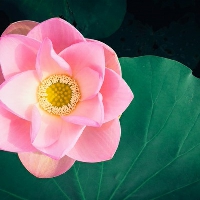The tuition fees of the first and second universities are generally between 3000 and 5000.
Individual majors (foreign languages, arts, etc.) of one or two books are 8000 to 10000.
The main difference depends on the location of the school and the teaching equipment used by the specialty. These will affect the orientation of tuition fees.
The state has subsidies for schools, so the tuition is basically stable and will not fluctuate.
How much does a college cost at least?
The annual tuition fees of ordinary public undergraduate colleges are generally between 4000 and 7000 yuan.
The tuition of a school is generally not expensive, and there is no difference except for some special schools or majors. The tuition of private schools will be more expensive, about 10000 yuan per year.
About 40000 to 50000 during the four-year college period, taking ordinary undergraduate schools as an example:
The tuition is generally about 5000 yuan.
5000 × 4 years=20000 yuan
The accommodation fee is about 1000 yuan a year.
1000 × 4 years=4000 yuan
1-year living expenses:
Breakfast 5 yuan+lunch 10 yuan+dinner 8 yuan=23 yuan.
23 × 30 days=690 yuan.
Winter vacation+summer vacation is 3 months, that is, 9 months in a year.
9 × 690=6210 yuan.
4-year living expenses: 6210 × 4=24840
Total: 4 years tuition 20000+4 years accommodation 4000+4 years living expenses 24840=48840 (yuan), about 50000 yuan.
Factors affecting tuition fees 1. School differences: the better the general school, the lower the tuition; The tuition of one school is lower than that of two schools, and the tuition of undergraduate schools is lower than that of junior colleges; Some key universities have very low tuition fees and are basically subsidized, such as Peking University, Tsinghua University and Fudan University, which are generally 5000 to 5500 yuan.
2. Regional differences: The tuition fees of universities will be affected by the regional economic development. The tuition fees of eastern and some central regions are higher, such as Zhejiang, Guangdong, Fujian, Jiangsu, etc. The tuition fees are higher, generally between 5500 and 7000; The tuition fees in the three northeastern provinces are relatively low, most of which are less than 5000; The tuition fees for one book in the central and western regions are also low. For example, the tuition fees in Xinjiang and Qinghai are about 3500 to 4000; Chongqing's tuition is high, around 6000; However, tuition fees are not necessarily linked to the economy. Some developed cities, such as Beijing, have relatively low tuition fees, which are mostly 5000 to 5500.
How much is the tuition for undergraduate courses
The tuition of the first and second college students is the lowest, with an annual tuition of 4500-5500 yuan.
Undergraduate enrollment is divided into three batches: the first batch is referred to as one copy (commonly known as duplicate copy), the second batch is referred to as two copies, and the third batch is referred to as three copies.
One and two are public schools with the lowest tuition fees. Sanben is a private school, mainly an independent college, with a high tuition fee of RMB 1-230000 per year.
Universities (Latin: UNIVERSITAS) generally refer to schools that implement higher education, and higher education organizations that provide teaching and research conditions and authorize the issuance of degrees, including comprehensive universities, colleges, higher vocational colleges, etc.
What is the general tuition standard for one and two universities?
Undergraduate tuition is generally 4000-20000 yuan per year.
Public universities have national or local financial support. Generally, a public university costs 4000-6000 yuan per year, and arts majors about 10000 yuan per year. However, Chinese foreign cooperation majors in public universities are also more expensive, with more than 10000 to 20000.
At present, a batch, two batches and three batches of undergraduate courses in many provinces are merged into undergraduate enrollment. Private universities need to raise funds to run their own schools. Generally, private undergraduate universities are 13000-18000 yuan per year, and art majors are 20000+yuan per year. The Chinese foreign cooperation majors in private universities are more expensive. Students with ordinary family conditions should consider carefully.
other expenses:
The annual book fee of undergraduate is about 500 yuan, 2000 yuan for four years; The accommodation fee for ordinary universities is about 1000 yuan per year, with a total of 4000 yuan for four years. Assuming that the monthly allowance of each student, including the round trip ticket, is 500 yuan on average, the total amount of the four-year undergraduate course is 24000 yuan for 48 months.
One book and two public books, with an average of about 4000; The average number of two or three privately run undergraduate courses is more than 20000, which means that the four-year tuition for public undergraduate courses is not enough to pay the one-year tuition for private undergraduate courses.
This is just the tip of the iceberg. Other expenses for private undergraduate courses are also very high!

